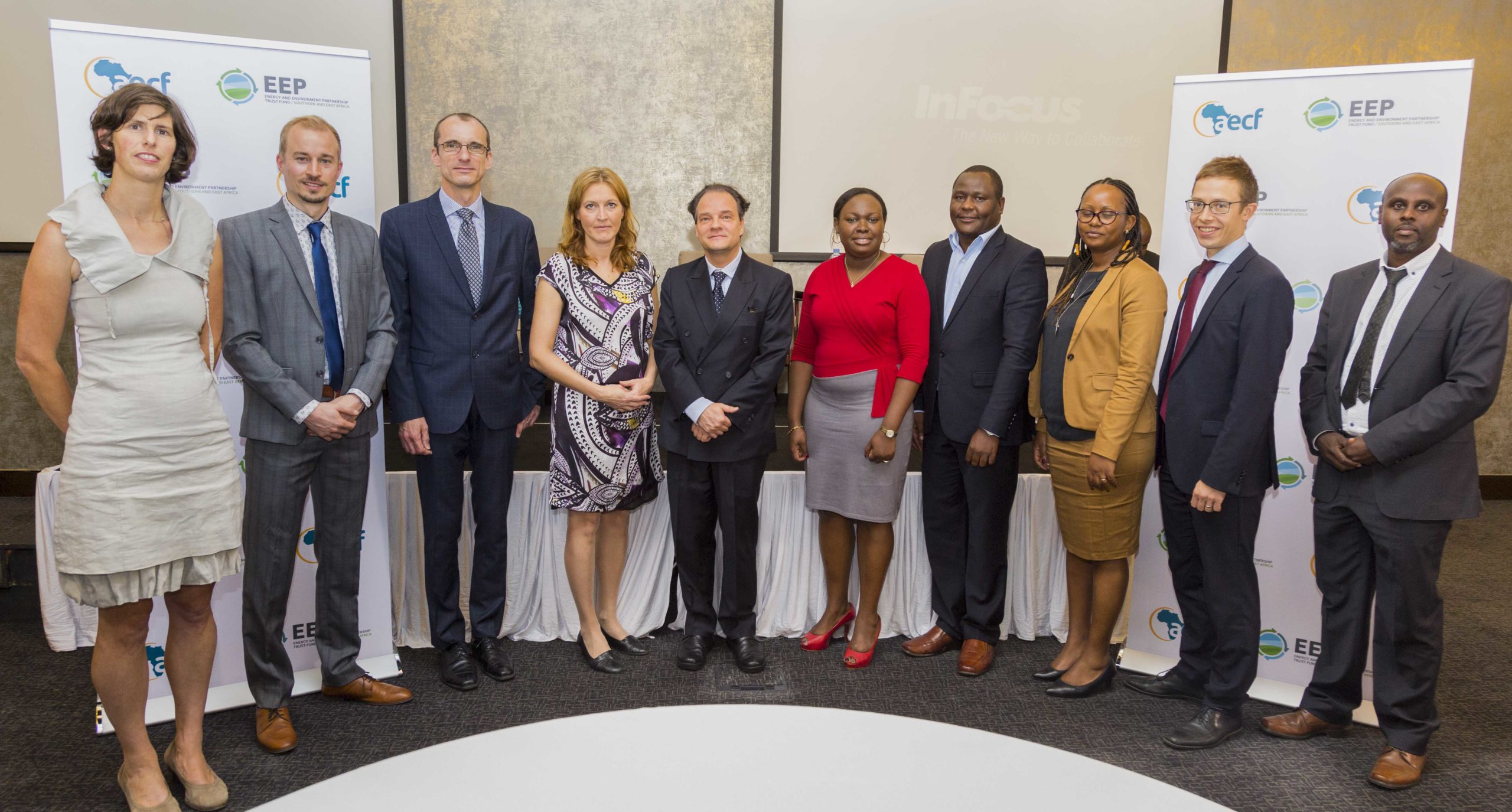The Africa Enterprise Challenge Fund (AECF) and the Energy and Environment Partnership Trust Fund (EEP Africa) recently hosted an investor forum in Nairobi, Kenya, bringing together financiers and companies from across the world to find investment opportunities in renewable energy businesses operating in Africa.
The forum was an investor to business (I2B) match-making platform that assists small and medium-sized enterprises (SMEs) broker deals that will expand and grow their businesses and contribute to the transformational agenda in Africa. The Investor Forum is a one-day workshop that brought together over 40 investors and project developers from across the world to unlock additional investments in the renewable energy sector.
Among the participants was Zonful Energy from Zimbabwe. Zonful Energy is a provider of turnkey off-grid PV systems on a Pay As You Go business model. The company specialises in independent power supply units for basic Households electrification-Solar Home System (SHS), water pumps for drinking and irrigation-Smart Solar Pumps (SSP), rural electrification of villages and telecom transmission stations.
Zonful Energy was launched in 2014 by founder William Ponela, an accomplished engineer seeking to provide a solution to millions of Zimbabweans living without electricity. The company is currently selling throughout rural Zimbabwe, with headquarters in Harare. Zonful Energy is funded by the AECF.
Speaking at the forum, Christian Fellner, guest of honour and Ambassador for Austria to Kenya, said that the world’s economy is driven by SMEs, entrepreneurs and start-ups.
“Most financiers and donors recognize the importance of the early-stage investment market in the creation of new jobs especially for women and youth and the development of the private sector in the clean energy sector in sub Saharan Africa,” Ambassador Fellner said.
The private sector is the key engine for job creation accounting for 90% of all jobs in the developing world with SMEs accounting for majority of these jobs. Despite the important role they play, SMEs cite access to affordable financing as a major hindrance in their operations and growth.
Paula Kermfors, Senior Programme Manager, Embassy of Sweden said that financing energy programmes is limited by domestic constraints and more comprehensively by context challenges that hinder an enabling private sector investment.
“Currently, energy access financing is beginning to penetrate the hard to reach markets – in rural, transitioning and fragile markets. Businesses working in such markets need to mobilise additional financing to sustain growth. Development capital blended with commercial funding can therefore provide the total financing needed by the businesses to create transformative impact,” said Paula when addressing the same forum.
The AECF provides catalytic funding and technical assistance to early stage private sector companies to improve market systems and create transformative impact to rural poor in Sub-Saharan Africa. For past 10 years, AECF has funded 268 businesses in the renewable energy and agribusiness sectors.
“From our experience the main gap in accessing finance for most SMEs and early stage private sector companies is mainly due to the limited scope of financial products available that are suitable for businesses targeting the rural communities in Africa. This has meant that at their growth stage most businesses struggle to get financing for their businesses. AECF funding has contributed to ensure such business demonstrate and sustain commercial viability and transformative impact within the target markets,” said Daniel Ohonde, CEO, of the AECF.
At the same time, investors have indicated difficulties in finding businesses that they can invest in. “There is limited information available on the renewable energy sector at the country level and existing pipeline ready for investment. Platforms like our Investor Forum are needed to provide investors the opportunity to meet potential businesses face-to-face, make real connections to companies and the people driving the businesses and assess prospective returns for renewable energy projects across the African continent,” Lauri, Tuomaala, EEP, Head of Portfolio and Finance said.
The investors will have access to a selected and pre-screened pipeline of clean energy businesses that have been funded by The AECF and EEP. The businesses present at the forum were selected based on technology and readiness for follow-on investment.
About Energy and Environment Partnership (EEP) Trust Fund
EEP Africa is a multi-donor trust fund providing early stage grant and catalytic financing to innovative clean energy projects, technologies and business models. Since 2010 EEP has channelled more than EUR 57 million to 200+ projects with positive impacts on lives and livelihoods in 15 countries in Southern and East Africa. EEP is hosted and managed by the Nordic Development Fund (NDF). Funding partners for EEP are Austria, Finland and NDF. Implementation support is provided by KPMG.
About the AECF
AECF is an Africa-based USD $356 million Enterprise Challenge Fund that works with the private sector on a risk sharing basis across 26 African countries to reduce poverty. It provides catalytic funding as grants or zero interest loans to private sector businesses that have a positive impact on the rural poor in Sub-Saharan Africa. The fund awards grants and/or loans to businesses focused on agriculture, agribusiness, renewable energy and adaptation to climate change with the aim of improving household incomes and reducing rural poverty. The fund is supported by Australia, Canada, Denmark, The Netherlands, Sweden and United Kingdom governments, international financial institutions, Consultative Group to Assist the Poor (CGAP) and IFAD.






